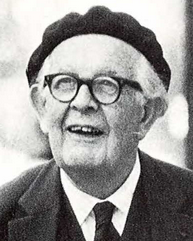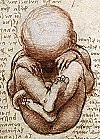
Developmental psychology is the scientific study of how and why humans grow, change, and adapt across the course of their lives. Originally concerned with infants and children, the field has expanded to include adolescence, adult development, aging, and the entire lifespan. Developmental psychologists aim to explain how thinking, feeling, and behaviors change throughout life. This field examines change across three major dimensions, which are physical development, cognitive development, and social emotional development. Within these three dimensions are a broad range of topics including motor skills, executive functions, moral understanding, language acquisition, social change, personality, emotional development, self-concept, and identity formation.

Educational psychology is the branch of psychology concerned with the scientific study of human learning. The study of learning processes, from both cognitive and behavioral perspectives, allows researchers to understand individual differences in intelligence, cognitive development, affect, motivation, self-regulation, and self-concept, as well as their role in learning. The field of educational psychology relies heavily on quantitative methods, including testing and measurement, to enhance educational activities related to instructional design, classroom management, and assessment, which serve to facilitate learning processes in various educational settings across the lifespan.

Jean William Fritz Piaget was a Swiss psychologist known for his work on child development. Piaget's theory of cognitive development and epistemological view are together called "genetic epistemology".
Lawrence Kohlberg was an American psychologist best known for his theory of stages of moral development.

Psychology is an academic and applied discipline involving the scientific study of human mental functions and behavior. Occasionally, in addition or opposition to employing the scientific method, it also relies on symbolic interpretation and critical analysis, although these traditions have tended to be less pronounced than in other social sciences, such as sociology. Psychologists study phenomena such as perception, cognition, emotion, personality, behavior, and interpersonal relationships. Some, especially depth psychologists, also study the unconscious mind.

Piaget's theory of cognitive development is a comprehensive theory about the nature and development of human intelligence. It was originated by the Swiss developmental psychologist Jean Piaget (1896–1980). The theory deals with the nature of knowledge itself and how humans gradually come to acquire, construct, and use it. Piaget's theory is mainly known as a developmental stage theory.
Lawrence Kohlberg's stages of moral development constitute an adaptation of a psychological theory originally conceived by the Swiss psychologist Jean Piaget. Kohlberg began work on this topic as a psychology graduate student at the University of Chicago in 1958 and expanded upon the theory throughout his life.
Cognitive development is a field of study in neuroscience and psychology focusing on a child's development in terms of information processing, conceptual resources, perceptual skill, language learning, and other aspects of the developed adult brain and cognitive psychology. Qualitative differences between how a child processes their waking experience and how an adult processes their waking experience are acknowledged. Cognitive development is defined as the emergence of the ability to consciously cognize, understand, and articulate their understanding in adult terms. Cognitive development is how a person perceives, thinks, and gains understanding of their world through the relations of genetic and learning factors. There are four stages to cognitive information development. They are, reasoning, intelligence, language, and memory. These stages start when the baby is about 18 months old, they play with toys, listen to their parents speak, they watch tv, anything that catches their attention helps build their cognitive development.
Loevinger's stages of ego development are proposed by developmental psychologist Jane Loevinger (1918-2008) and conceptualize a theory based on Erik Erikson's psychosocial model and the works of Harry Stack Sullivan (1892-1949) in which "the ego was theorized to mature and evolve through stages across the lifespan as a result of a dynamic interaction between the inner self and the outer environment". Loevinger's theory contributes to the delineation of ego development, which goes beyond the fragmentation of trait psychology and looks at personality as a meaningful whole.
Stages of development may refer to:
The model of hierarchical complexity (MHC) is a framework for scoring how complex a behavior is, such as verbal reasoning or other cognitive tasks. It quantifies the order of hierarchical complexity of a task based on mathematical principles of how the information is organized, in terms of information science. This model was developed by Michael Commons and Francis Richards in the early 1980s.

Positive adult development is a subfield of developmental psychology that studies positive development during adulthood. It is one of four major forms of adult developmental study that can be identified, according to Michael Commons; the other three forms are directionless change, stasis, and decline. Commons divided positive adult developmental processes into at least six areas of study: hierarchical complexity, knowledge, experience, expertise, wisdom, and spirituality.
Infant cognitive development is the first stage of human cognitive development, in the youngest children. The academic field of infant cognitive development studies of how psychological processes involved in thinking and knowing develop in young children. Information is acquired in a number of ways including through sight, sound, touch, taste, smell and language, all of which require processing by our cognitive system.

Neo-Piagetian theories of cognitive development criticize and build upon Jean Piaget's theory of cognitive development.

Andreas Demetriou is a Greek Cypriot developmental psychologist and former Minister of Education and Culture of Cyprus. Founding Fellow and current president of The Cyprus Academy of Sciences, Letters and Arts.
Moral development focuses on the emergence, change, and understanding of morality from infancy through adulthood. The theory states that morality develops across a life span in a variety of ways and is influenced by an individual's experiences and behavior when faced with moral issues through different periods of physical and cognitive development. Morality concerns an individual's reforming sense of what is right and wrong; it is for this reason that young children have different moral judgment and character than that of a grown adult. Morality in itself is often a synonym for "rightness" or "goodness." It also refers to a specific code of conduct that is derived from one's culture, religion, or personal philosophy that guides one's actions, behaviors, and thoughts.
Role-taking theory is the social-psychological concept that one of the most important factors in facilitating social cognition in children is the growing ability to understand others’ feelings and perspectives, an ability that emerges as a result of general cognitive growth. Part of this process requires that children come to realize that others’ views may differ from their own. Role-taking ability involves understanding the cognitive and affective aspects of another person's point of view, and differs from perceptual perspective taking, which is the ability to recognize another person's visual point of view of the environment. Furthermore, albeit some mixed evidence on the issue, role taking and perceptual perspective taking seem to be functionally and developmentally independent of each other.
Child lying refers to children displaying varying degrees of deceptive behavior in a social situation. Children have been observed lying as early as age 2 and their deceptive skills increase sharply as they mature into adolescence. Children who have advanced cognitive skills for their age have an increased tendency to begin lying at earlier ages. Children may lie for various reasons including, but not limited to, escaping punishment for not obeying a task, through observation of their parents and peers, or lacking a comprehensive understanding of basic morality.
The Washington University Sentence Completion Test (WUSCT) is a sentence completion test created by Jane Loevinger, which measures ego development along Loevinger's stages of ego development. The WUSCT is a projective test; a type of psychometric test designed to measure psychic phenomenon by capturing a subject's psychological projection and measuring it in a quantifiable manner. The test has been characterized as a good test for clinical use as it can measure across distinct psychopathologies and help in choosing treatment modalities; to this end, it is used by many clinical psychologists and psychiatrists.

Juan Pascual-Leone is a developmental psychologist and founder of the neo-Piagetian approach to cognitive development. He introduced this term into the literature and put forward key predictions about developmental growth of mental attention and working memory.





